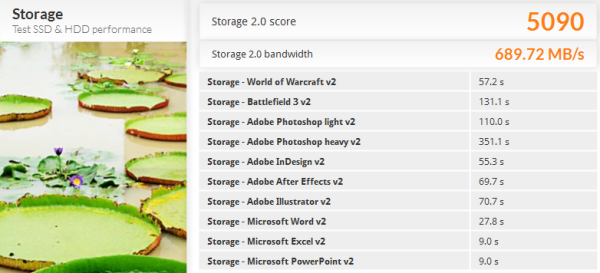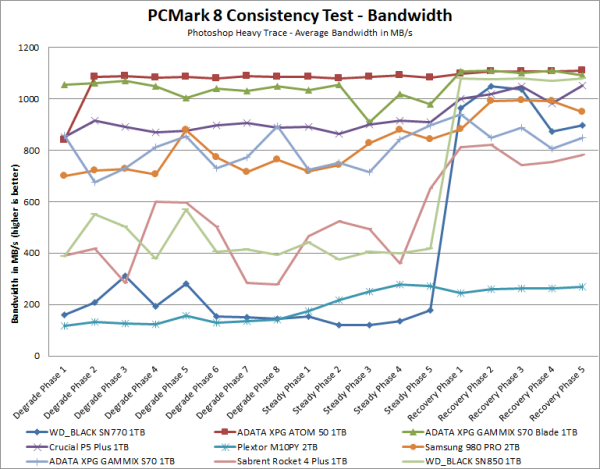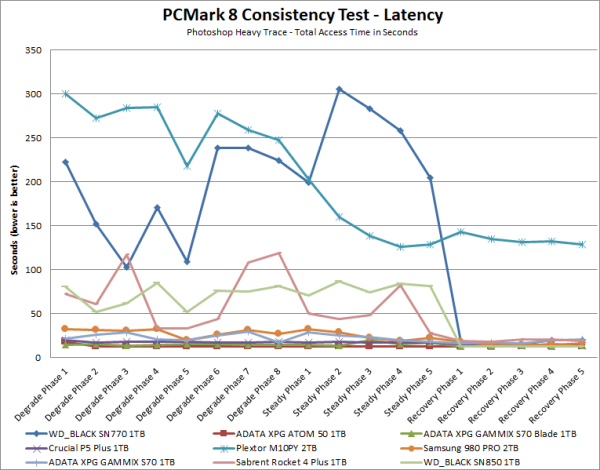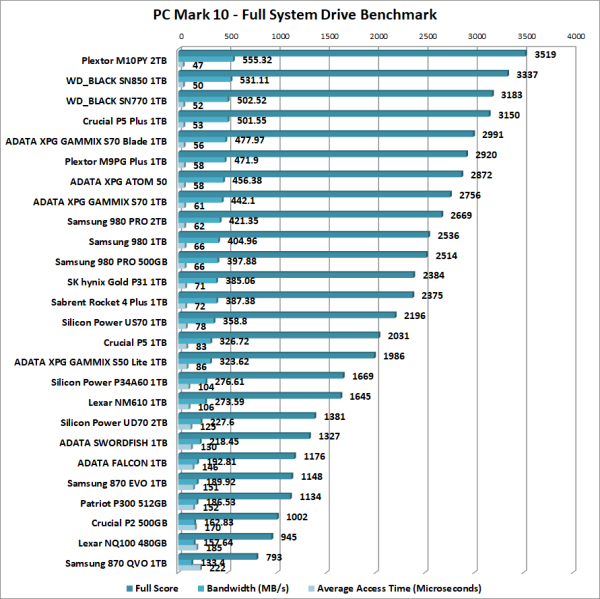PCMark 8 - Storage Test:
PCMark 8 is a complete benchmark for Windows. It includes five benchmark tests, each designed around a specific scenario. The storage benchmark measures drive performance using real-world traces recorded from Adobe Creative Suite, Microsoft Office and a selection of popular games.

PCMark 8 also includes a consistency test which measures the performance consistency and degradation tendency of a storage system. The test reports the performance level at the start, the degraded steady-state and the recovered state as well as the number of iterations required to reach the degraded state and the recovered state. For this test, we are focusing on the Adobe Photoshop (Heavy) trace and will look at both the bandwidth and latency of the drive.


The WD_BLACK SN770's performance was hit and miss in this test. During the degradation and steady phases, the drive's bandwidth dropped below 200 MB/s, pushing its latency well above the 200ms mark. The WD_BLACK SN770 was able to recover though, jumping back up to 1048 MB/s.
PCMark 10 - Full System Drive Benchmark:
PCMark 10's Full System Drive Benchmark uses a wide-ranging set of real-world traces from popular applications and common tasks to fully test the performance of the fastest modern drives. This benchmark produces an overall score as a measure of drive performance. Comparing devices is as simple as comparing scores. The tests also measure and report the bandwidth and average access time performance for the drive.

The WD_BLACK SN770 did surprisingly well in PCMark 10's Full System Drive Benchmark. While not quite as fast as the Plextor M10PY or the WD_BLACK SN850, it performed better than the Crucial P5 Plus, ADATA XPG GAMMIX S70 Blade and Samsung 980 PRO.

